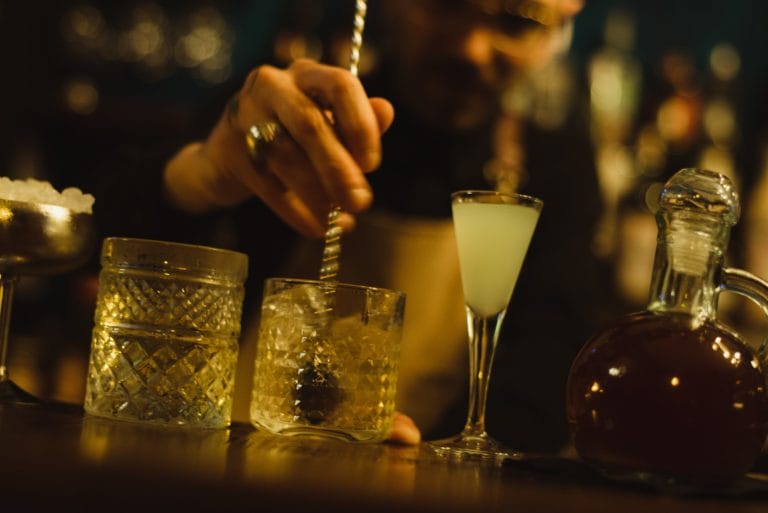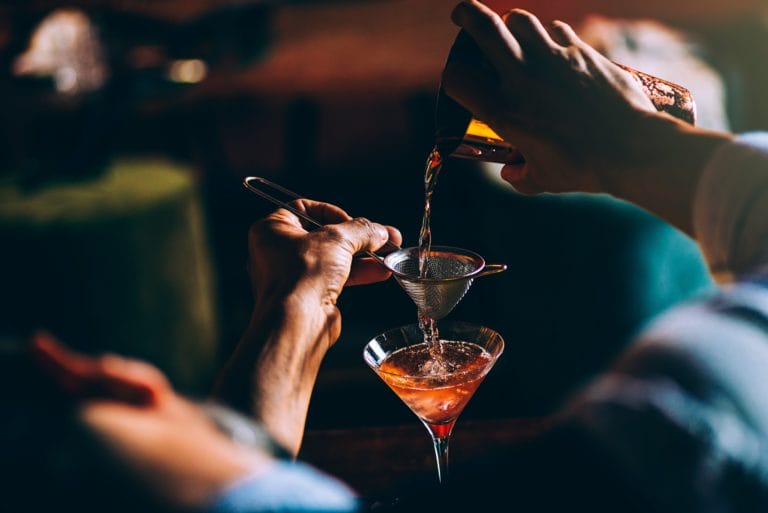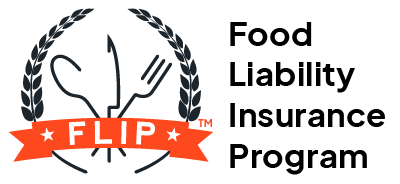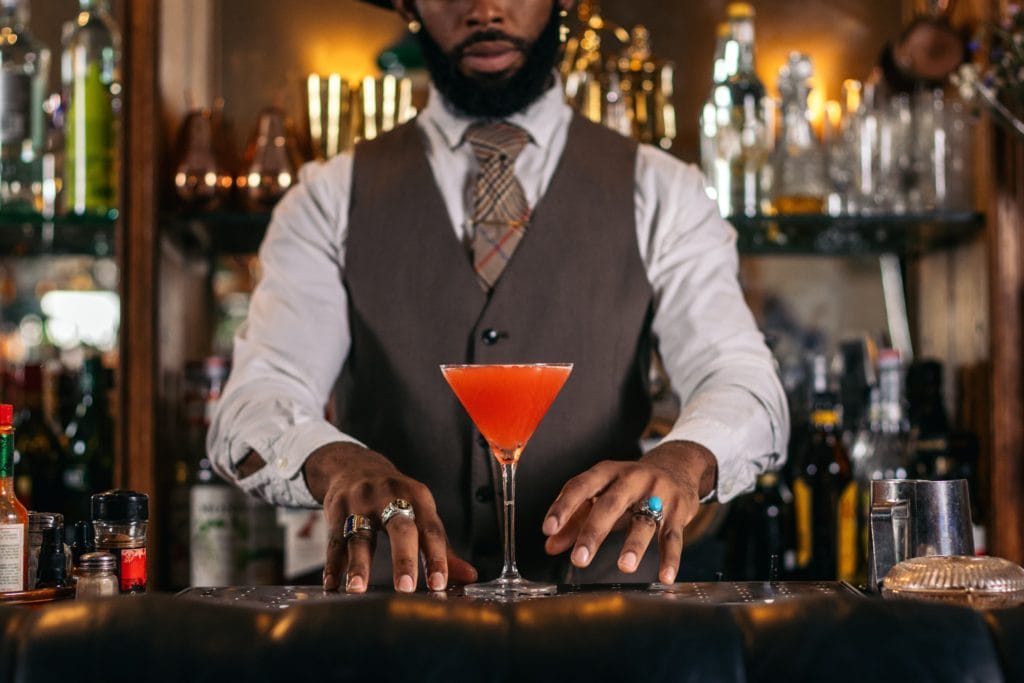Last Updated: 3/31/2025
Bartenders can be held liable for alcohol-related accidents caused by their patrons, including property damage, bodily injuries, and even death.
Educating yourself on potential accidents and knowing what steps to take to prevent them can go a long way toward minimizing the chances of being held liable.
So, what kinds of claims can you be held responsible for, and what can you do to protect yourself from bartender liability?
Common Liability Claims for Bartenders
The following are real examples of bartenders held liable for their negligence and/or the actions of the people they served. Incidents like these are preventable with the right training and risk management.
Overserving Leads to Four Deaths
A bartender in Galveston, Texas, was arrested after serving an intoxicated customer involved in a deadly car accident on August 6, 2022.
The customer drove through a stop sign and crashed his vehicle into a golf cart and a pickup truck. There were three adults and three children in the cart at the time of the crash, and only one adult and one child survived in serious condition.
The victims’ families sued the bartender and three other bars who served the driver in the hours leading up to the incident. The bartender faced a fine of up to $500 and a year in jail for his role in the driver’s intoxication.
University Students Caught Underage Drinking
Nearly a dozen students from the University of Dayton in Ohio were arrested for underage drinking at local pubs and restaurants in 2024. Five students went to one of the pubs together and ordered drinks at the bar. The bartender did not check any of their IDs before serving them.
While the students were arrested for underage drinking, the bartender was also arrested because they had provided alcohol to minors, which is illegal in every U.S. state.
In Ohio, anyone selling or providing alcohol to a minor can face an unclassified misdemeanor charge, a maximum of six months in jail, and up to $1,000 in fines.
Intoxicated Minor Injured in a Car Accident
In October 2023, a 19-year-old driver crashed his car in Macon County, North Carolina, after a night of drinking. The driver and his three friends in the car were seriously injured and treated at nearby hospitals.
Law enforcement verified the driver purchased multiple alcoholic beverages from a local establishment before getting behind the wheel. They discovered that the 41-year-old bartender failed to verify the driver’s age before serving him.
Consequently, he was charged with selling alcohol to a minor and allowing violations to occur at a business with an Alcoholic Beverage Control (ABC) license.
Bartender Arrested After Undercover Operation
The local police department in Winter Haven, Florida, launched “Operation Pop Top” in 2024 — an initiative to catch bartenders in the city who weren’t checking IDs and selling alcohol to minors.
Law enforcement worked with minors to check 12 bars, restaurants, and convenience stores in the area. The operation caught three bartenders selling alcohol to minors. One of them neglected to check the minor’s ID before serving.
All three bartenders were arrested for providing alcohol to underage patrons. Selling alcohol to a minor in Florida is a misdemeanor and can result in fines, probation, or jail time.
Pro Tip: If you are held responsible for your patrons’ actions, liquor liability insurance can help cover the cost of attorney’s fees, settlements, and other expenses. Get your free quote today!

How Does Dram Shop Law Affect Bartenders?
Dram shop laws are designed to hold bartenders and alcohol-serving businesses responsible for damages caused by their patrons. This includes third party bodily injuries and destruction of property, such as injuries to a driver hit by one of your intoxicated patrons or damages to the fence they crashed into.
These laws differ between states, but they almost always address serving alcohol to minors or intoxicated individuals.
Every U.S. state has dram shop laws except:
- Delaware
- Kansas
- Louisiana
- Maryland
- Nebraska
- Nevada
- South Dakota
- Virginia
Even if you live in a state without these laws, you can still be held responsible for these damages. For example, if one of your intoxicated customers drives drunk and kills someone in a car accident, the family of the deceased person can still sue you for damages.
Bartender Guidelines for Safe Serving
An ounce of prevention is worth a pound of cure. Implementing safe serving practices into your day-to-day operations is the best way to prevent claims like the ones mentioned above.
Do the following to be a better bartender and keep yourself and your patrons safe:
- Check IDs carefully: Always verify the age of anyone ordering a drink, look for signs of tampering, and check the expiration date. For added security, use an ID scanner like those made by Minor Decliner.
- Recognize signs of intoxication: Slurred speech, watery red eyes, lack of eye focus, argumentative behavior, and a lack of coordination (stumbling, swaying, or falling) are all signs someone has been over-served.
- Limit alcohol consumption: Serve patrons one drink at a time and avoid serving them another before they finish the last drink they ordered. Adopt a zero-tolerance policy for drinking games, which can lead to intoxication.
- Offer non-alcoholic alternatives: Make water, soda, and other non-alcoholic beverages readily available. Encourage eating while drinking with a snack menu.
- Promote safe transportation: Offer free non-alcoholic drinks and snacks to designated drivers and provide information on ride-sharing services, taxis, and other transit options.
- Document incidents: Keep records of any situations involving intoxicated patrons, fake IDs, or refusals of service.
Key Takeaway
Mitigate the risk of alcohol-related claims with safe serving practices like checking IDs thoroughly, offering non-alcoholic beverages, promoting safe transportation options, and more.
Monthly Insurance for Bartenders: Protecting Yourself From Liability
Knowing how to prevent alcohol-related accidents lowers your chances of getting hit with a claim. But if an accident does happen, you’ll be glad to have insurance.
Bartender liability insurance is there to shield you from claims like the ones above, so if something goes awry, you won’t be left to pay legal expenses and settlement fees out of pocket.
Get annual bartender liability insurance from Food Liability Insurance Program (FLIP) for as low as $37.75 a month or $453 a year.
This policy includes general liability and liquor liability coverage to protect you against third-party bodily injury and property damage claims, including those caused by alcohol consumption.
These claims can be extremely costly, sometimes racking up millions of dollars in expenses, so don’t skip getting insured. Stay prepared and protect your livelihood — get bartender insurance today!

FAQs About Bartender Liability
Can Bartenders Be Held Liable for Overserving Alcohol?
Yes, bartenders can be held liable for overserving intoxicated patrons, depending on where they live. Many states have overserving laws that prohibit serving alcohol to an intoxicated person, but not all of them.
Even between the states that do, there are different consequences for bartenders guilty of this crime.
Can a Bartender Be Sued If a Customer Causes a DUI Incident?
Yes, bartenders can be held responsible for patrons who cause drunk driving incidents according to dram shop laws. These laws vary by state but determine how and when bartenders and businesses can be held liable for overserving patrons who then cause harm, including drunk driving accidents.
How Much Does Bartender Liability Insurance Cost Per Month?
Whether you’re a dedicated wedding bartender or work a wide variety of events, FLIP offers monthly insurance for bartenders starting at $37.75 per month. The cost of your premium depends on a few factors, including:
- The state you work in
- Your gross annual revenue
- The limits you select
Can Bartenders Refuse to Serve Someone?
Yes! In fact, it may be your legal responsibility to refuse to serve someone, such as a minor trying to order an alcoholic beverage. You may also be legally required to refuse service to someone who is visibly intoxicated or engaging in disruptive behavior that poses a threat to others.

Alex Hastings
Seattle-based copywriter and (WA) licensed insurance agent Alex Hastings leverages her experience as a lover of fast-casual food, baked goods, and iced oat milk lattes. She holds a B.A. in Creative Writing from Western Washington University. Before working at Veracity, she was a retail copywriter at Zulily and an English language teacher in South Korea. Alex is fully trained on FLIP insurance coverages and writes content that connects food and beverage business owners with the policies they need.
Seattle-based copywriter and (WA) licensed insurance agent Alex Hastings leverages her experience as a lover of fast-casual food, baked goods, and iced oat milk lattes. She holds a B.A. in Creative Writing from Western Washington University. Before working at Veracity, she was a retail copywriter at Zulily and an English language teacher in South Korea. Alex is fully trained on FLIP insurance coverages and writes content that connects food and beverage business owners with the policies they need.

